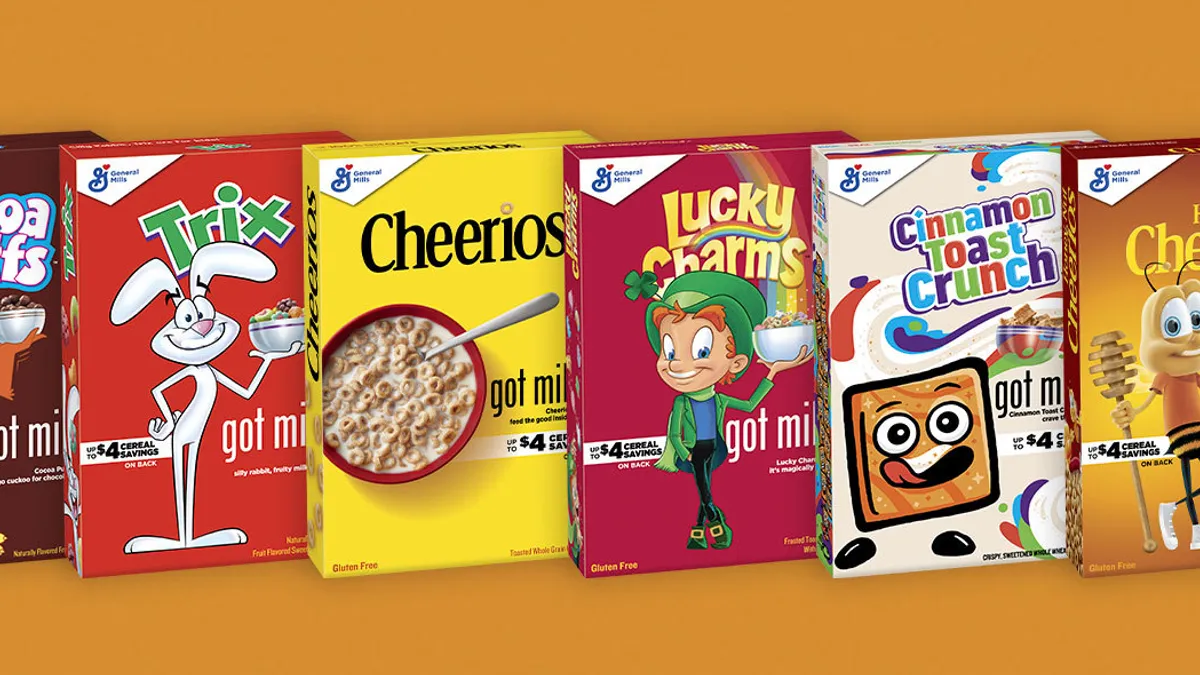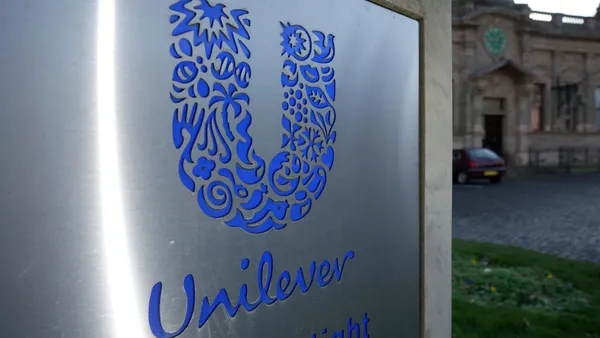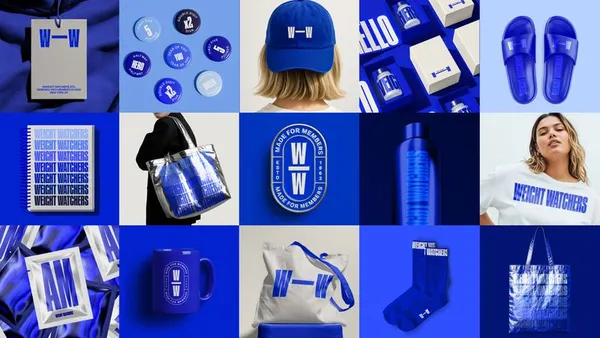Dive Brief:
- General Mills joined the growing list of marketers freezing advertising and capital investments in Russia in response to the Ukraine war, a company statement said.
- The marketer of Cheerios, Pillsbury and Yoplait does not wholly own any plants or distributors in the country. It has a joint venture with Nestle called Cereal Partners Worldwide (CPW) that oversees cereal sales outside North America. The two together have decided to wind down Russian operations.
- Sales generated by CPW in Russia make up less than 1% of General Mills' global take, meaning the business impact should be small. Still, General Mills wants to send a message that it's taking the right actions as consumer scrutiny of brand practices grows.
Dive Insight:
General Mills doesn't have a meaningful footprint in Russia, which makes its decision to freeze advertising activity and capital investments register mostly as symbolic. The company said it's currently focused on the refugee crisis as people flee Ukraine, including by donating food and water to local charities. It framed the announcement as in "Response to question of Operations in Russia."
Brands have come under intense pressure to react to the Ukraine crisis, which has stretched on for weeks. Some that initially remained in Russia faced strong backlash, a potential warning sign for companies that consumers view as dragging their feet in cutting ties. McDonald's, Coca-Cola and Pepsi were among those that saw trending boycott hashtags on social media from people angered that they would continue to do business in the region.
A hardline pullout poses practical challenges around areas like the supply chain, along with raising ethical questions over who is getting punished by such actions. Other large CPG brands have tried to take a measured approach as they look to safeguard employees and provide for everyday Russian consumers.
Procter & Gamble, which has a more extensive Russian presence than General Mills, similarly froze marketing activity and investments, while continuing to sell everyday health, hygiene and personal care goods. In a statement, CEO Jon Moeller expressed sympathy for Russian citizens and staff impacted by the war.
Mars, another large packaged foods marketer, last week suspended promotional and social media activity in Russia and Belarus and pledged to put any profits from its Russia segment toward humanitarian causes. The company has worked in Russia for 30 years and has about 6,000 employees there. It said it would halt import and exports in Russia for the time being, a move that follows Unilever, another influential CPG giant.
Consumers have signaled a clear interest in seeing brands reassess their place in Russia as emotions run high. A survey by research firm Gartner found that eight in 10 U.S. adults could name an action they'd like to see marketers take, with reconsidering doing business in Russia or with Russian partners topping the list. Other steps, like donating aid or making a statement, ranked comparatively low.














